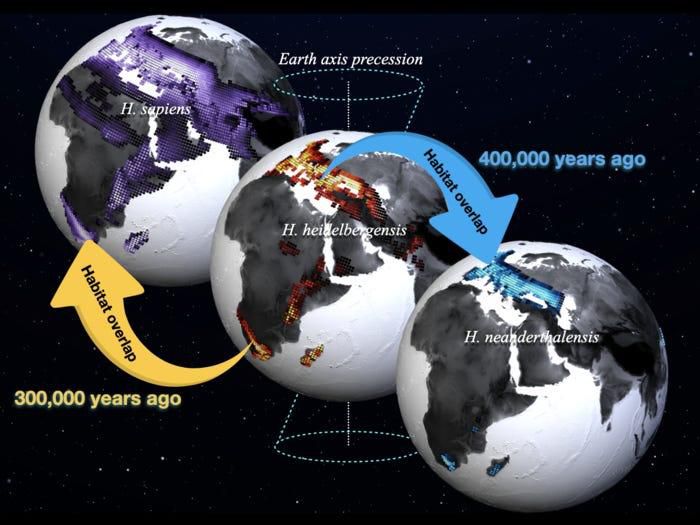Homo Sapiens originated in Africa over 300,000 years ago, according to a new study
)
- Researchers concluded that modern humans descended from Africa before migrating out of the continent 60,000 to 70,000 years ago.
- According to the report, modern humans migrated from Africa to settle in a geographic hub that spanned Iran, southeast Iraq and northeast Saudi Arabia.
- Further insights from the report revealed that these people lived in small, mobile bands of hunter-gatherers before entering Europe and Asia around 70,000 years ago.
According to the report, modern humans migrated from Africa as a homogeneous population to settle in a geographic hub that spanned Iran, southeast Iraq and northeast Saudi Arabia before entering Europe and Asia around 70,000 years ago. The researchers called this region, part of the Persian Plateau, a “hub” for these people - who numbered perhaps only in the thousands - before they continued millennia later to more distant locales, The Independent reported.
Further insights from the report revealed that these people lived in small, mobile bands of hunter-gatherers. Anthropologist and study co-author Michael Petraglia, director of the Australian Research Centre for Human Evolution at Griffith University, said the hub location offered a variety of ecological settings, from forests to grasslands and savannahs, fluctuating over time between arid and wet intervals.

Pagani disclosed that the people inhabiting the hub at the time were apparently dark-skinned, suggesting a resemblance to the Gumuz or Anuak people now living in parts of East Africa. He added that their eventual dispersal in different directions beyond the hub set the basis for the genetic divergence between present-day East Asians and Europeans, the researchers said.
Commenting on the research, Leonardo Vallini of the University of Padova and the University of Mainz in Germany said the study “is a story about us and our history.” He explained further that the researchers devised a way to disentangle the extensive genetic mixing of populations that has occurred since the dispersal out of the hub in order to pinpoint this region.

,fit(112:112))
)
)
)
)
,fit(112:112))